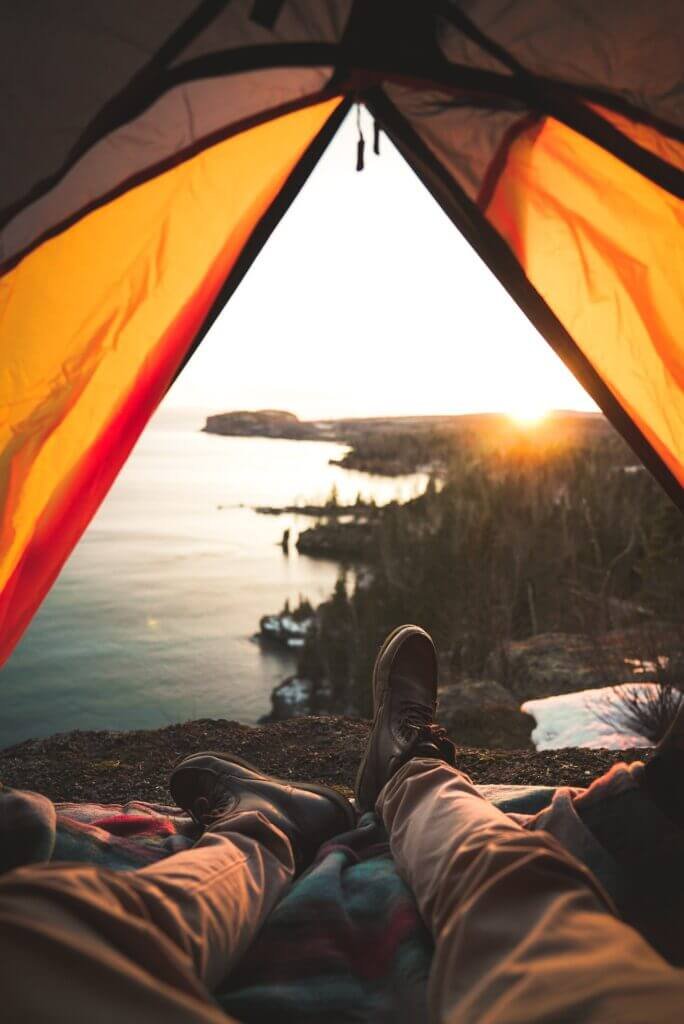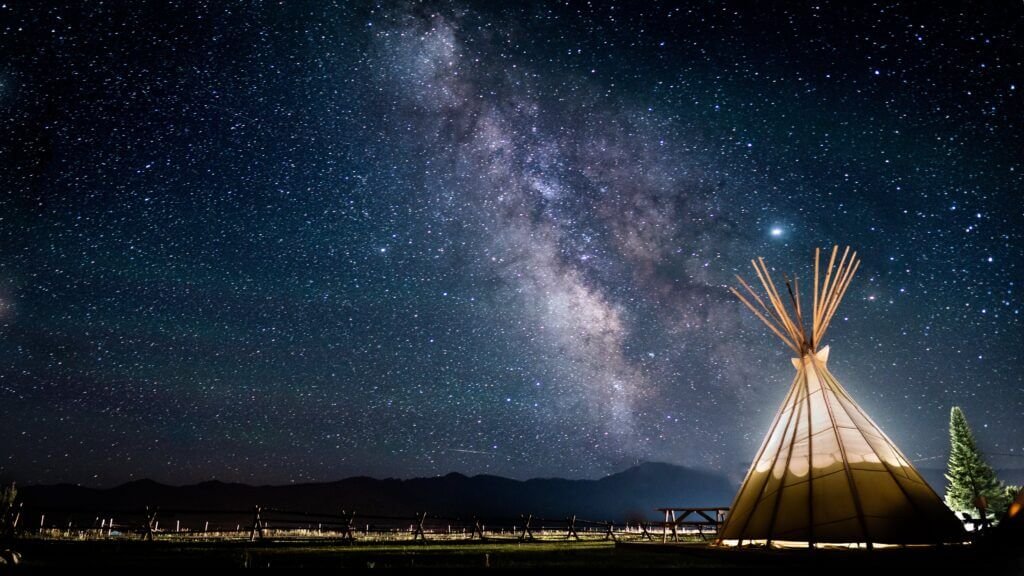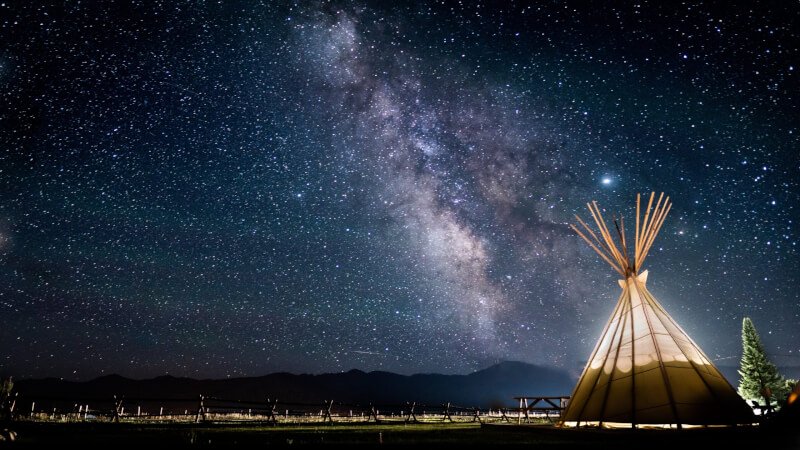So, you’ve caught the camping bug and you’re ready to embark on your next outdoor adventure. But before you can pitch your tent in that picturesque spot you’ve been eyeing, you need to figure out how to secure camping permits and reservations. Luckily, we’re here to guide you through the process, ensuring that you’ll have a hassle-free experience in the great outdoors. From national parks to privately-owned campgrounds, we’ll cover the ins and outs of obtaining the necessary permits and reservations, so you can focus on what really matters – enjoying nature and creating unforgettable memories.

Finding Camping Permits
When it comes to finding camping permits, there are a few steps you can take to ensure you have all the necessary information. The first step is to research campgrounds in the area where you plan to camp. Identify the campgrounds that interest you and gather information about the permit requirements for each one. This can usually be found on their websites or by contacting the campground directly.
Another important resource to check is government websites. Many parks and recreational areas have their own websites where they provide information on camping permits. These websites often have detailed information about the various types of permits available, as well as any specific rules or regulations you need to be aware of.
If you’re having trouble finding the information you need online, don’t hesitate to contact the park offices directly. Park offices are usually staffed by knowledgeable and friendly individuals who can provide you with the most up-to-date information regarding camping permits. They can also answer any questions you may have and help guide you through the permit application process.
Lastly, consider using reservation services to secure your camping permit. These services can be a convenient way to reserve a spot at popular campgrounds, especially during peak camping season. They often have access to a wide range of campgrounds and can help you find the best options based on your preferences and availability.
Types of Camping Permits
Camping permits can vary depending on the type of camping experience you’re looking for. Understanding the different types of permits available will help you choose the one that best suits your needs.
Individual permits are typically for single campers or small groups. These permits allow you to camp at designated campgrounds and usually have a maximum number of people allowed per site. Individual permits are a great option if you’re planning a solo camping trip or if you’re camping with just a few friends or family members.
For larger groups, group permits are often required. These permits allow multiple tents and a higher number of campers, making them ideal for family reunions, scout groups, or other large gatherings. Group permits often have additional requirements, such as designated group camping areas or advanced reservations.
If you’re looking for a more remote camping experience, backcountry permits may be necessary. Backcountry camping permits allow you to camp in designated wilderness areas that are not accessible by car. These permits are usually limited to a certain number of people per night and may require additional safety precautions, such as bear canisters or specific camping techniques.
Long-term permits are also available for those who wish to camp for an extended period of time. These permits are often required for individuals or families who plan on staying at a campground for more than a few weeks. Long-term permits may come with specific rules or regulations, so be sure to check the details before applying.

Making Camping Reservations
Once you’ve determined the type of camping permit you need, it’s time to make your reservations. There are several methods you can use to secure your spot.
Booking online is often the most convenient option. Many campgrounds and reservation services have online booking systems that allow you to select your desired dates and reserve your campsite in just a few clicks. This method is quick and easy, and you can often see real-time availability to ensure you get the dates you want.
If you prefer a more personal touch, calling park offices directly is a great option. The park staff can assist you over the phone, answer any additional questions you may have, and provide personalized recommendations based on your preferences. This method allows for direct communication and can help alleviate any concerns you may have.
Reservation services can also be a valuable resource when making camping reservations. These services often have access to a wide range of campgrounds and can help you find the perfect spot based on your preferences and availability. They can streamline the booking process and ensure you find the best camping experience for your needs.
Understanding Reservation Policies
When making camping reservations, it’s important to understand the reservation policies associated with your chosen campground or reservation service. These policies can vary, so be sure to read them carefully before finalizing your reservation.
The reservation window refers to the timeframe in which you can make your reservation. Some campgrounds and services allow you to book up to a year in advance, while others have shorter reservation windows. Knowing the reservation window will help you plan accordingly and ensure you secure your desired dates.
Cancellation policies outline the rules for canceling or modifying your reservation. It’s important to understand these policies in case your plans change or unforeseen circumstances arise. Some campgrounds may offer full or partial refunds for canceled reservations, while others may have strict no-refund policies.
Changing reservations can be necessary at times, so it’s important to know the process for modifying your reservation. Whether you need to change your dates, increase or decrease the number of people in your group, or switch to a different campground altogether, understanding the steps for making changes will help ensure a smooth transition.
No-show policies outline what happens if you fail to arrive at the campground on your reserved dates. Some campgrounds may hold your spot for a certain amount of time before releasing it to other campers, while others may consider a no-show as a forfeit of your reservation. Understanding the no-show policies will help you avoid any unnecessary fees or complications.

Tips for Securing Permits and Reservations
Securing camping permits and reservations can sometimes be a competitive process, especially for popular campgrounds during peak camping season. Here are some tips to increase your chances of securing the permits and reservations you want.
First and foremost, plan in advance. Many campgrounds and reservation services allow bookings up to a year in advance, so take advantage of this early booking window. The sooner you can secure your spot, the better chance you have of getting the dates you want.
If your desired campground is fully booked, consider alternative campgrounds in the area. There are often hidden gems that may not be as well-known but still offer a fantastic camping experience. Researching and exploring alternative options can open up a whole new world of camping opportunities.
Opting for midweek reservations can also increase your chances of securing a spot at popular campgrounds. Many campers prefer weekend trips, so booking your stay from Sunday to Thursday can often result in more availability. Plus, midweek stays tend to be more peaceful and less crowded, allowing for a more serene camping experience.
Finally, consider camping during off-peak seasons. Not only will you have a better chance of securing a reservation, but you’ll also experience fewer crowds, lower prices, and potentially cooler weather. Off-peak camping can be a wonderful way to escape the hustle and bustle of everyday life and truly connect with nature.
Additional Considerations
While camping permits and reservations are essential for most camping experiences, there are a few additional considerations to keep in mind.
If you’re planning any special activities during your camping trip, such as fishing, hunting, or hiking, you may need additional permits or licenses. Research the specific regulations for your chosen campground and ensure you have all the necessary permits and licenses before engaging in these activities.
For those planning to camp in wilderness areas, it’s important to note that additional permits may be required. These permits help protect the delicate ecosystems and ensure a limited number of visitors at any given time. Be sure to research the specific wilderness area you plan to visit and follow any permit requirements to help preserve the natural beauty for future generations.
National parks often have their own permits and regulations, so if you’re planning to camp in a national park, be sure to familiarize yourself with their specific requirements. National parks are some of the most beautiful and iconic camping destinations, but they often have limited camping spots and high demand, so it’s important to plan accordingly.
If you’re planning to camp with pets, be sure to check if there are any specific permits or regulations regarding pets at your chosen campground. Some campgrounds may have restrictions or require additional fees for pets, so it’s important to consider these factors when making your camping reservations.
By understanding the process of obtaining camping permits and reservations, you can ensure a smooth and enjoyable camping experience. Researching campgrounds, contacting park offices, and utilizing reservation services will help you find the best camping options for your needs. By following reservation policies, planning in advance, and considering alternative options, you can increase your chances of securing the camping experience you’re looking for. And always remember to check for any additional permits or regulations that may apply to your specific camping plans. Happy camping!


